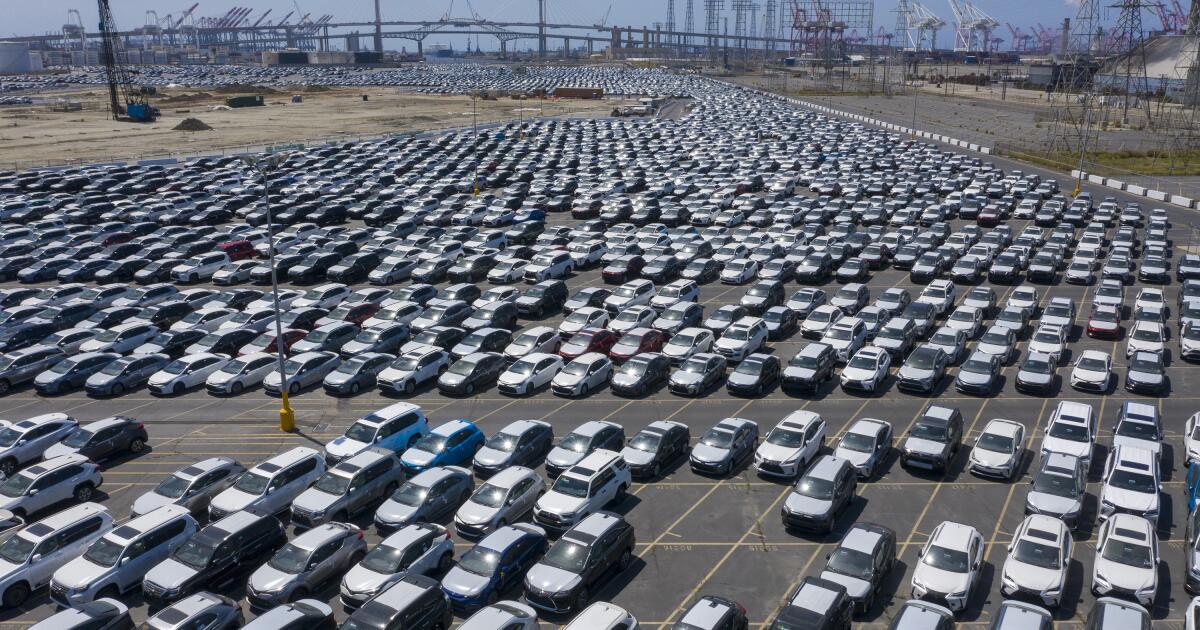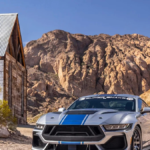Toyota Motor Corp. confirmed it will plow as much as $10 billion into the US over the next five years to boost its local operations, less than a month after President Donald Trump flagged that the Japanese carmaker planned such an investment.
The announcement clears up a confusing moment from Trump’s visit to Tokyo last month, when he said Toyota would build plants all over the US “to the tune of over $10 billion.” At the time, the automaker wouldn’t confirm such a plan, calling it mere speculation.
The automaker provided no further details on how it will spend the funds. David Christ, Toyota’s US sales chief, said that will be revealed at a later date.
“We’ll announce the investment plans for the $10 billion as we get closer to making the investments,” Christ told reporters Wednesday at a ceremony for a new battery plant in North Carolina.
The investment announcement comes as the Trump administration pressures the global auto industry to shift more production to the US and imposed punitive tariffs on many car parts and vehicles sourced from abroad.
Toyota’s top executive in the US, Ted Ogawa, said the battery plant and new investment “marks a pivotal moment in our company’s history.”
The president called out Toyota by name earlier this year for importing too many vehicles from Japan to the US, and also singled it out during this first administration for building up manufacturing operations in Mexico.
In an attempt to blunt that earlier criticism, Toyota promised in 2017 to invest $13 billion in US manufacturing. The company said earlier this year that it had spent those funds and that its total investment in the US currently exceeds $50 billion — spread over nearly seven decades.
The Japanese company imported about half of the vehicles it sold in the US last year, mostly from Canada and Mexico but also including some 281,000 vehicles made in Japan.
The latest investment commitment was timed to coincide with the official opening of Toyota’s newest plant, a lithium-ion battery manufacturing facility located near Greensboro, North Carolina.
Construction of the factory in the rural town of Liberty cost $13.9 billion and production is expected to slowly ramp up over the next decade. Toyota said it will create 5,100 new jobs and supply both hybrid gas-electric and all-electric models.
When Toyota first announced the US battery plant project in 2021, it envisioned a steady rise in Americans’ demand for EVs due in part to then-President Joe Biden’s efforts to speed adoption of zero-emission vehicles with favorable policies.
Trump’s return to the White House has led to a swift about-face in federal emissions regulations, including the abandonment of incentives for EV buyers such as a $7,500 tax credit.
Toyota has four lines currently producing batteries for hybrids, which at full capacity can supply up to 600,000 gas-electric vehicles. Those will be installed in models such as the Camry mid-size sedan and hybrid versions of the Corolla Cross crossover and best-selling RAV4 compact SUV.
Three more lines will be added next year, one dedicated to batteries for 45,000 all-electric vehicles a year and two that can make batteries for an additional 74,000 fully electric or plug-in hybrid vehicles, Anne Souder, a plant general manager, told reporters at a briefing.
The carmaker aims for a total of 14 lines to be operational by 2034, but its decision to scale back ambitious plans to sell as many as seven EV models in the US has injected uncertainty into Toyota’s plans for production of all-electric vehicle batteries.
“With the regulation changes, it’s changed a little bit,” Don Stewart, president of the battery plant, told reporters.
Demand for EVs has is expected to soften, and BloombergNEF now forecasts a major surplus in US battery cell manufacturing capacity by 2030. That’s largely due to a 14 million-unit downward revision in projected US sales of EVs by then.
The carmaker delivered fewer than 30,000 all-electric in the US in 2024, even as its sales of hybrid gas-electrics have skyrocketed.
Dawson writes for Bloomberg.
Business
Business
Business
Business
Business
Business
Business
Business
Subscribe for unlimited access
Site Map
Follow Us
MORE FROM THE L.A. TIMES












